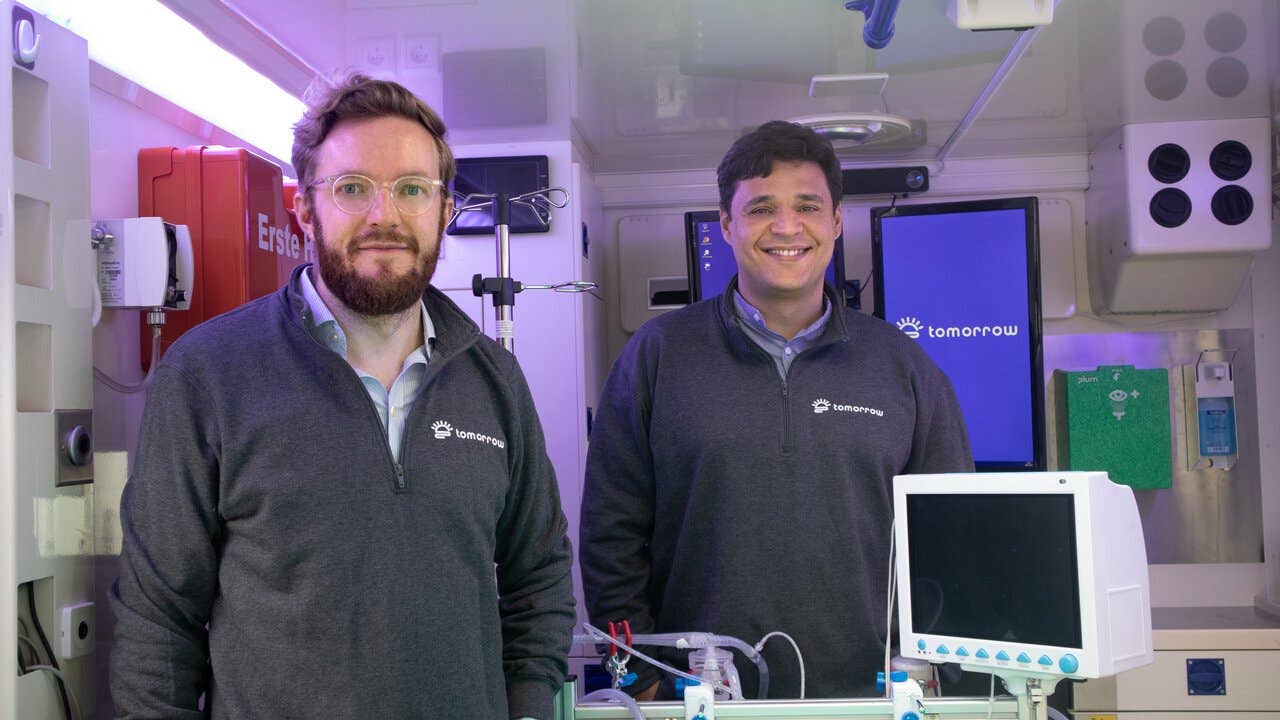Want to live longer? Startup aims to bring you back from the dead
Within gene therapy, personalised medicine, gerontology, and treatments for life-threatening conditions, a startup is reimagining longevity

In the bustling streets of Berlin, within the intersection of gene therapy, personalised medicine, gerontology, and treatments for life-threatening conditions, a startup is reimagining human longevity. Instead of merely extending life,
Tomorrow Biostasis is venturing into the realm of resurrecting it. While it's a daring endeavor, with its prospects grounded in scientific advancements that may or may not transpire, the company's approach to the challenge is revolutionizing the very core of startup culture.
What is Cryopreservation?
At its core, cryopreservation, synonymous with biostasis or cryonics, is a method where, posthumously, your body (or just the brain) undergoes a meticulous preservation process. Stored in a state of stasis in specialized facilities, the goal is that future medical breakthroughs will not just address the primary cause of your demise, but also rejuvenate you for another lease on life.
In legal terms, cryopreservation mirrors scientific body donation. It's gaining traction across Europe, so much so that some universities are imposing donation limits and even levying charges. Tomorrow Biostasis, always striving to lead, has already cryopreserved "about ten people" for educational objectives.
Related Stories
The Visionary Behind the Venture
Dr. Emil Kendziorra, the co-founder and CEO, has a compelling journey leading to this venture. Beginning with a medical degree, followed by a stint in cancer research, he soon realized the painstakingly slow pace of academic research.
"Unfortunately, academic research is very, very slow. So I don't think that fits well with my personality," he commented. This realization propelled him to launch three ventures, two of which saw successful acquisitions. His current ambition? Spearheading Europe's foremost cryogenics firm, marking a European counterpart to American giants like The Alcor Life Extension Foundation and The Cryonics Institute.
Predictably, Tomorrow Biostasis isn't about hasty conclusions. The company's meticulous strategies span across providing medical standby teams, managing contracts, orchestrating transport logistics, streamlining customer communication, and nurturing a community.
Nestled close to their headquarters is the standby ambulance, a reminder of their mission, and one that I pass by daily.
Collaborative Efforts
Distinctly, Tomorrow Biostasis isn't an isolated endeavor. The company intricately collaborates with two pivotal organizations:
- The Tomorrow Patient Foundation (TPF): An esteemed Swiss non-profit private benefit entity, TPF takes on the crucial role of being the legal custodian of the cryopreserved individuals.
- European Biostasis Foundation: Besides being a pivotal research cornerstone, this foundation facilitates the extended care of patients in Rafz, Switzerland. The process? Upon their arrival, individuals are cooled to a staggering -196 degrees Celsius, subsequently placed in dewars brimming with liquid nitrogen, ensuring their cryopreservation remains uninterrupted.
The typical customer profile might surprise you. Contrary to picturing elderly individuals on the brink of life, most on the waiting list are surprisingly young, with the average age being 36. "Younger people are less likely to have grown up with technology and are less likely to be religious," Kendziorra states. While the list boasts diverse demographics, tech enthusiasts predominantly grace it.
Navigating the Financials
In terms of financing, pitching an idea that hinges on the uncertainty of the future isn't straightforward. Yet, some investors are so engrossed in this vision that they've signed up for the service, with others keen to invest in what could be a transformative future.
Costing an average of €200,000 for full-body preservation, the service doesn't come cheap. However, for those unable or unwilling to opt for the full package, there's the option to preserve just the brain for €60,000. Such alternatives not only make cryopreservation more accessible but are also practical, economizing on storage space.
Kendziorra is quick to assert, "we don't get more money if it's a whole body over a brain. In fact, none of the money goes to us". Instead, these funds flow directly to the foundation, which in turn compensates the company.
A Glimpse into the Future
The ethical, philosophical, and logistical conundrums posed by cryopreservation are multifold. From the possibilities of 3D printing bodies to the challenges of reintegrating into a radically transformed society after revival, there's a lot of unknown territory.
When pressed on the subject, Kendziorra envisions scenarios like technical cyborg reincarnations or a "consciousness in a computer." The potential repercussions of early revivals, leading to impaired memories, or the challenges of readapting to a world 100 years advanced are aspects the company grapples with.
Furthermore, the ethical implications cannot be ignored. "Medical scientists have to treat all people equally. But who should be preserved and revived?" These and myriad other questions continue to shape the discourse.
However, Kendziorra remains optimistic, even if he's proven wrong about the prominence of cryopreservation in the future. "If, in 20 years, longevity becomes an option, that's fine. But right now, research into cryopreservation will have the most impact on living a long life."
In this thrilling frontier of science, startups like Tomorrow Biostasis aren't just envisioning a different tomorrow; they're meticulously laying the foundations for it. As they continue to pioneer, only time will tell whether they can turn the seemingly fantastical into reality.
Note: Materials provided above by The Brighter Side of News. Content may be edited for style and length.
Like these kind of feel good stories? Get The Brighter Side of News' newsletter.
Joseph Shavit
Head Science News Writer | Communicating Innovation & Discovery
Based in Los Angeles, Joseph Shavit is an accomplished science journalist, head science news writer and co-founder at The Brighter Side of News, where he translates cutting-edge discoveries into compelling stories for a broad audience. With a strong background spanning science, business, product management, media leadership, and entrepreneurship, Joseph brings a unique perspective to science communication. His expertise allows him to uncover the intersection of technological advancements and market potential, shedding light on how groundbreaking research evolves into transformative products and industries.



